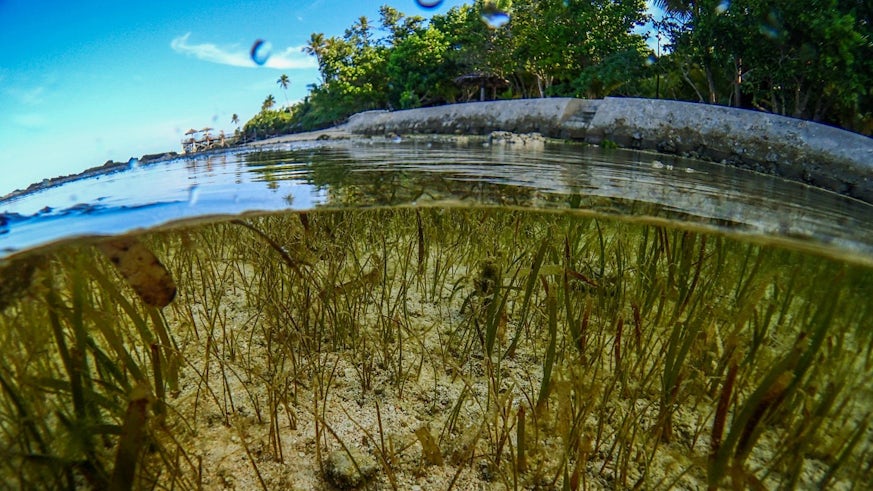New hope for global marine conservation
28 October 2016

Successful efforts to conserve seagrass – the powerhouse of the sea – have been presented at a global event in a bid to empower people to further engage with marine conservation.
The 12th International Seagrass Biology Workshop, hosted by Cardiff University, Swansea University and Project Seagrass - a charity started by researchers from the two universities - saw 170 marine scientists from around the world outline success stories of seagrass conservation.
The event included workshops on the restoration of seagrass meadows, which presented examples of improved and more reliable methods for enhancing our marine environment. Discussions on how to make seagrass meadows more resilient to environment change also illustrated how actions to improve coastal water quality have shown improvements for productive seagrass.
Benjamin Jones, founding director of Project Seagrass and a Research Assistant at Cardiff University’s Sustainable Places Research Institute said: “The plight of our global oceans is arguably one of the greatest challenges for humanity during the next century. Whilst it is critically important to understand, it is vital that we also understand how conservation solutions are being developed around the world..."
“The world needs stories of hope as well as stories of ‘doom and gloom’ to inspire and motivate a new generation of conservation scientists and practitioners. No marine habitat is more needing of those stories of hope than seagrass meadows, a globally expansive habitat of fundamental importance.”
As part of the event, research by Cardiff University was highlighted, including work to understand the role of seagrass meadows in Pattalam Lagoon, Sri Lanka; research which identified the link between seagrass, food security and economic value in Wakatobi, Indonesia; and an investigation into the extent to which seagrass meadows support fish biodiversity within the Myeik Archipelago.
Dr Richard Unsworth, who is based at Swansea University but associated with Cardiff University’s Sustainable Places Research Institute, said: “Participants at the workshop highlighted many reasons to be optimistic, telling stories of real action being taken to improve our oceans. Such stories ranged from a lone individual replanting seagrass in Western Australia to measures the EU has taken to use seagrass meadows as sentinels of the marine environment.”
Ahead of the workshop, event organisers - along with the World Seagrass Association - released a statement describing how action needs to be taken to save the world’s seagrass.
Signed by more than 160 scientists, the statement warns that the loss of seagrass puts the livelihoods of hundreds of millions of people at risk and exposes many people to increasing levels of poverty. With many coastal dwelling peoples around the world having livelihoods heavily linked to seagrass meadows their trajectory toward extinction has serious implications.
“The loss of seagrass from common human induced impacts such as poor water quality, coastal development, and destructive fishing leads in turn to the loss of most of the fish and invertebrate populations that they support,” said Benjamin.
The statement also raises hope by focusing on examples of seagrass meadow protection and restoration. It outlines how the seagrass ocean prairies are “key fishing grounds” and “one of the most efficient oceanic stores of carbon on earth”, the latter meaning that they play a crucial role in preventing human emissions of carbon dioxide contributing to damaging climate change.
Share this story
Hear more from our researchers and affiliates about their work in the field of sustainable place-making.
